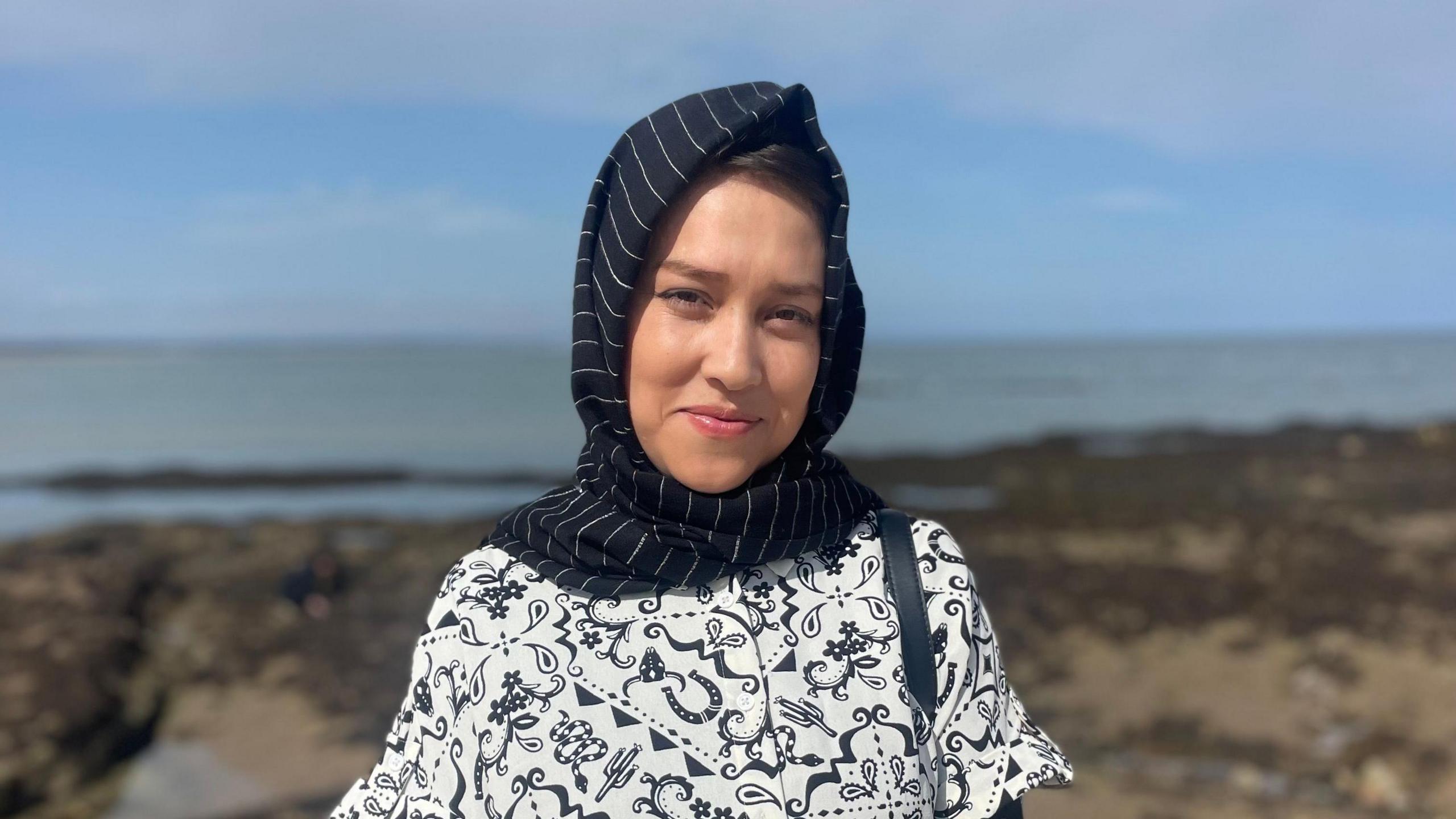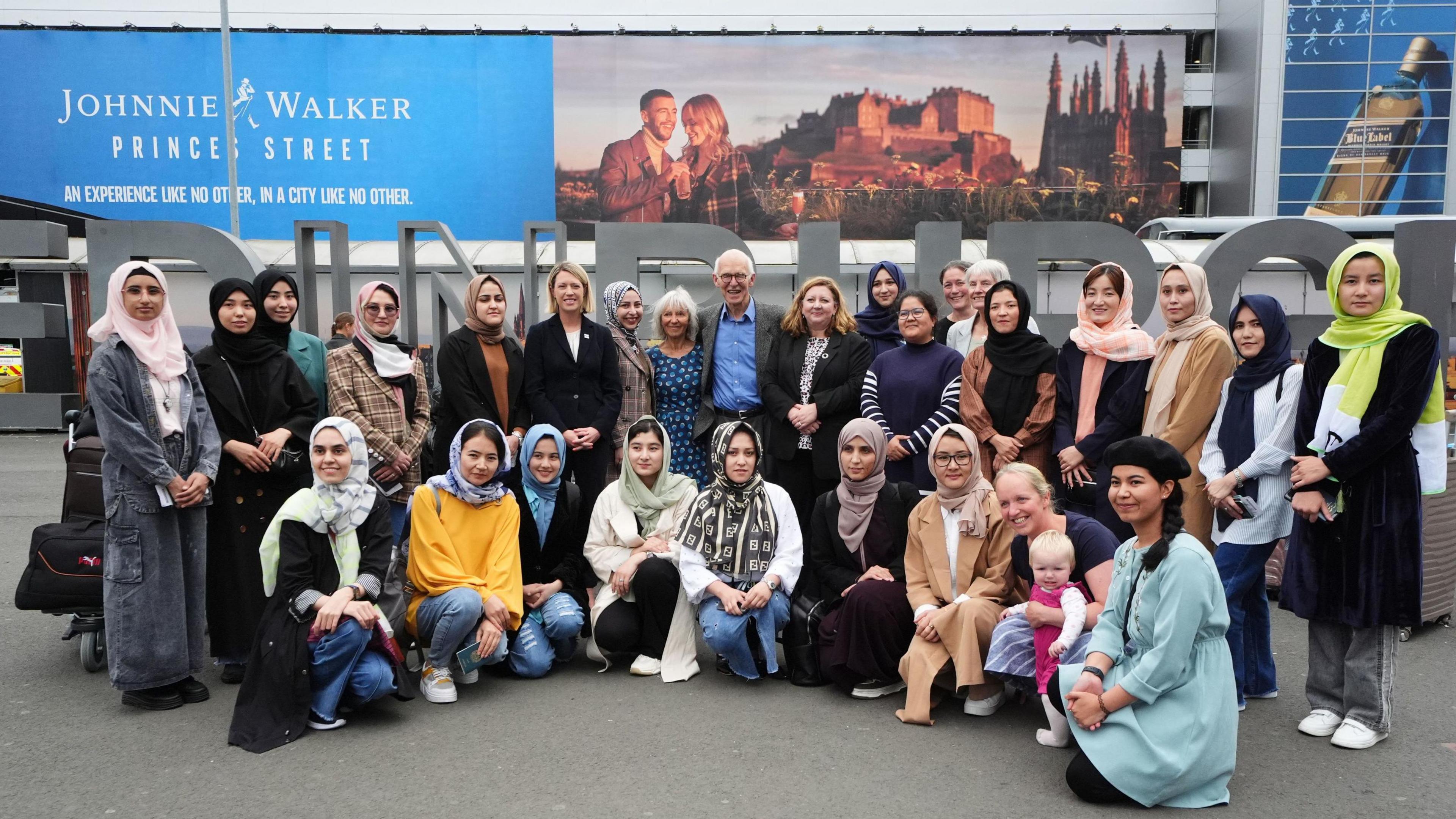'In Scotland I can pursue medicine dreams the Taliban took away'

Omulbanin Sultani said she enjoyed exploring Scotland when she was not studying
- Published
Even in the summer months, when her university classes are on a break, Omulbanin Sultani studies six days a week.
The 22-year-old dreams of becoming a dermatologist one day and serving the people of her homeland, Afghanistan.
She was one of 19 medical students who were brought to Scotland a year ago as part of a scheme arranged by the Isle of Lewis-based charity The Linda Norgrove Foundation and the UK and Scottish governments.
The programme allows them to continue studies they were forced to give up when the Taliban retook control of Afghanistan three years ago and clamped down on women's rights.
Omulbanin was placed at St Andrews University and has taken to revising in the university late at night.
But when she is not there she enjoys spending time on West Sands beach and exploring other Scottish towns and cities.
Afghan women to finish medical studies in Scotland
- Published21 August 2024
Scots charity in bid to help 20 Afghan students
- Published10 September 2023
She told BBC Scotland News: "I have learned that around the world everything is just the same. The education system is the same.
"We all laugh the same, we are all sad in the same way. It's just the language we speak that is different."
Omulbanin was forced to leave her family as well as her fiancé at home to pursue her dreams.
But she said a potential future at home has kept her motivated.
"If I was not engaged to him, I wouldn't be able to come here and to make my dream come true," she said.
"He's one of my motivations and why I want to continue this sacrificing.
"I will have years being far from my family, being far from my fiancé, and won't be able to do what I want but there are a lot of years coming where I can do that.
"It's joyful to imagine the days that are waiting for me."

The students arrived in Scotland last year courtesy of the Linda Norgrove Foundation
Omulbanin estimates that it will take about 10 years for her to become a qualified dermatologist.
She said she was inspired by seeing an aunt struggle to access care from a female medic when she was a child.
In Afghanistan, many women are unable to receive treatment from a male professional.
However, that dream was snatched away in December 2022, when the Taliban announced that women would no longer be able to attend university, with immediate effect.
"The night before they called us to say that tomorrow you cannot come to university, university is banned," she said.
"I think I cried the whole night, it was something that hurt our spirit more than our body.
"Some girls lost the motivation for everything, and they just focused on being just a good wife, bringing up children, but that's annoying for someone who dreams of being something besides a mother."
She added: "I was trying to tell my brain that I should accept this condition, stay at home, just cook or anything.
"But then I was like no, it's not the way. If everybody in the world says that everything is possible, for me it should be also the same."
'I try to be an example for my sister'
Omlubanin used all her spare time to study medicine and dermatology online.
Two years ago, she learned that she had been selected as a part of a small group that would be allowed to come to Scotland to study.
The Linda Norgrove Foundation, set up in memory of an aid worker who was killed in Afghanistan in 2010, raised £600,000 to cover the cost of getting the 19 women to the UK and accommodating them in Scotland.
Omulbanin is grateful every day for the opportunity and often thinks of the women left behind with no educational prospects, including her 15-year-old sister.
She said: "On the days that I video call my family, I show them my university, my books, the library, and my little sister says it is her dream to be able to study in a library.
"So, I just try and be a good example for her, so that she tries her best and gets a chance to get out of Afghanistan and study.
"I want her to become something and be able to do something for Afghanistan."
A UK government event in Edinburgh on Monday will celebrate a year since the students arrived in Scotland.
It is a time to recognise their achievements, but Omulbanin's thoughts are always of home.
"I hope there comes a day in Afghanistan when women can do whatever they want," she said.
"I hope we can be happy and not worry about a fundamental right which is education."